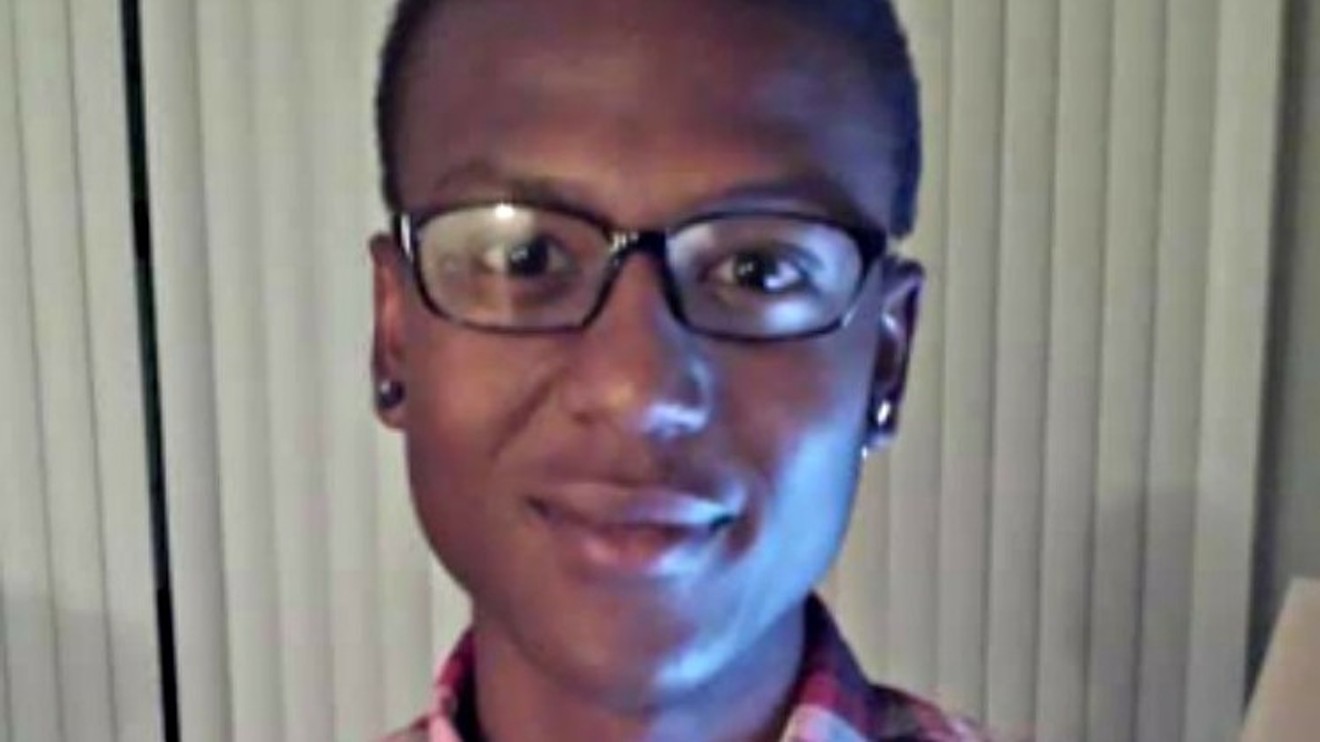During peaceful protests in downtown Denver yesterday, June 2, demonstrators who gathered to express their horror over the police-custody death of George Floyd in Minneapolis also chanted the name of the late Elijah McClain — and this reference was apt.
According to attorney Mari Newman, who spoke at the rally alongside Representative Leslie Herod, with whom she's worked for months on a just-announced police accountability bill, the way the 23-year-old McClain died in August 2019 following what she describes as "fifteen minutes of torture" at the hands of Aurora Police Department officers is "every bit as egregious" as what happened to Floyd. "But it didn't gain the same kind of national attention," she says.
Why not? Floyd's death was "caught on clear video that reveals the deadly, racist policing for exactly what it was," Newman explains. In contrast, the body cameras on the Aurora officers in the McClain incident were all dislodged, leaving plenty of disturbing audio of his final moments but little useful imagery.
The cops involved insist that the snafu with the body cameras was accidental, but Newman doesn't buy it. "In Elijah McClain's case, we saw yet another example of how Aurora police intentionally tampered with their body cameras in order to avoid accountability" for an incident that was beyond unnecessary, she says. After all, the 911 caller who reached out to the APD after seeing McClain dancing to music while wearing a ski mask made it clear that he'd committed no crime, and he was unarmed, as well. But while officers accosted McClain anyway, and even injected him with the drug ketamine during the quarter-hour prior to his death from a heart attack, they've been cleared of wrongdoing.
Newman, who represents McClain's family, has promised that a lawsuit over the death is on the way. But she's also focused on preventing the kinds of actions that have led to so many similar incidents involving people of color over the years. That's why she's been so involved with the legislation that Herod and Senate President Leroy Garcia plan to introduce today, June 3.
According to Herod's office, the measure "appoints the State Attorney General as an independent investigator of all instances where law enforcement’s use of force results in death or serious bodily injury. The bill also removes the shield of immunity for prosecution from law enforcement found to have acted unlawfully, allowing peace officers to be sued in their individual capacity. The bill will additionally require all law enforcement to use body cameras and to collect and report data on the individuals that are stopped and searched."
Such measures are necessary, in Newman's view, because of how often Colorado's elected officials allow abuses to continue, in contrast to the way things were handled after Floyd's death. "The Minneapolis mayor's response to the killing there shows just what kind of leadership is missing here," she says. "The fact that the mayor immediately and forcefully denounced racist policing, and the fact that the killer was indicted within a matter of days for the murder, shows that leadership can take action. So there's simply no excuse for the fact that the mayors in Colorado cities where the same kind of killings took place fail to stand up and do what's right."
Newman thinks word of McClain's story will gain steam "as the lawsuit proceeds and the facts become even more public about what the police did" — and she feels the same way about the death in Colorado Springs last year of De'Von Bailey, who was shot in the back by an officer while fleeing from cops; he had a gun in his pocket but never brandished it, and "certainly didn't deserve to be summarily executed," she stresses.
"Racist police killings in this country are nothing new," Newman acknowledges. "The only difference is they are now captured on film sometimes — and every time that racist and brutal policing gets public attention is critical for the movement to hold law enforcement accountable for their unconstitutional and inhumane treatment of people of color."
[
{
"name": "Air - MediumRectangle - Inline Content - Mobile Display Size",
"component": "12017618",
"insertPoint": "2",
"requiredCountToDisplay": "2"
},{
"name": "Editor Picks",
"component": "17242653",
"insertPoint": "4",
"requiredCountToDisplay": "1"
},{
"name": "Inline Links",
"component": "18838239",
"insertPoint": "8th",
"startingPoint": 8,
"requiredCountToDisplay": "7",
"maxInsertions": 25
},{
"name": "Air - MediumRectangle - Combo - Inline Content",
"component": "17261320",
"insertPoint": "8th",
"startingPoint": 8,
"requiredCountToDisplay": "7",
"maxInsertions": 25
},{
"name": "Inline Links",
"component": "18838239",
"insertPoint": "8th",
"startingPoint": 12,
"requiredCountToDisplay": "11",
"maxInsertions": 25
},{
"name": "Air - Leaderboard Tower - Combo - Inline Content",
"component": "17261321",
"insertPoint": "8th",
"startingPoint": 12,
"requiredCountToDisplay": "11",
"maxInsertions": 25
}
]












